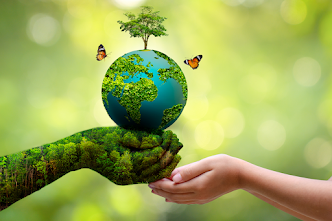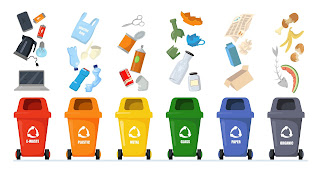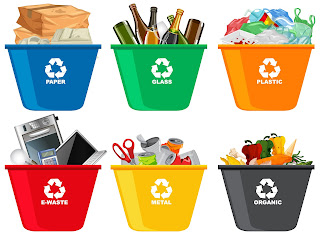The Future of Recycling: Techniques and Technologies that Help Protect the Environment
In today's world, recycling is becoming more critical than ever before. We generate an incredible amount of waste every day, and finding efficient and eco-friendly methods for waste disposal is necessary to prevent further damage to the environment. Fortunately, recycling technology has come a long way in recent years.
With innovative techniques and technologies, we can improve our recycling methods and make a significant impact on our planet.
- Improved Sorting Techniques
One of the most significant problems with recycling is sorting different types of waste items efficiently. Items that are improperly sorted can contaminate others, reducing the value of recyclable materials. Advanced sorting technologies are enabling recyclers to identify and separate materials mechanically or with advanced sorting algorithms. This technology is making it much easier to recycle various materials, from metal and glass to plastics and textiles. By improving sorting methods, we can increase the percentage of recycled materials that end up in new products and reduce the amount of waste ending up in landfills. - Chemical Recycling
Plastics are one of the most significant environmental hazards that we face today. Although plastic recycling efforts have been successful in limiting waste, there is still much work to be done. That's where chemical recycling comes in. This process involves breaking down plastics chemically to create basic building blocks of the original materials that can, in turn, be used to create new products without losing performance or quality. By using this innovative technology, we can reduce the plastic waste in our landfills and oceans and make our environment clean and safe for future generations. - Biodegradable Materials
Another promising technique for reducing the amount of waste we produce is the creation of biodegradable materials. These are items made from natural or renewable resources that can break down safely within a short period. Unlike regular plastics, they are not harmful to the environment and can be recycled, composted, or returned to the earth. This technology can reduce the waste we produce and, at the same time, improve our environment's health. - Innovative Collection Systems
The collection of waste is a significant challenge in recycling. Many households and businesses do not participate in recycling programs for various reasons, such as lack of time, confusion over what to recycle, or simply inconvenience. Innovative collection systems can help overcome these barriers by making recycling more accessible and user-friendly. Examples of these are bin systems for the segregation of waste, portable compactor and baler machines, and trash chutes and conveyors. These technologies are making it easier for people to recycle and are also saving time and resources. - IoT-Enabled Recycling
Another exciting future aspect of recycling is IoT-enabled technologies. IoT, short for the Internet of Things, is connecting various sensors, devices, and machines to form a network for integrating waste management activities. With IoT-enabled sensors, waste management companies can track the volume of waste, the type of material, and the location, making it easier to allocate collection and recycling efforts more efficiently. As a result, recycling companies are now better equipped to reduce the impact of waste on the environment and save time and resources in the long run.
Conclusion:
In conclusion, recycling is becoming more essential than ever before, given the urgent need to protect the environment and secure a sustainable future. With innovative technology and techniques, we can achieve an efficient, eco-friendly recycling process that benefits us and future generations. Whether you're a homeowner, a business owner, or just a concerned citizen, there's so much that you can do to help save the planet. Do your part today by supporting recycling initiatives in your community, reducing your use of plastics, and investing in environmentally-friendly products. Together, we can help create a better, safer future for everyone. So, check out more about the recycling facts by visiting online at SwagCycle.




Comments
Post a Comment